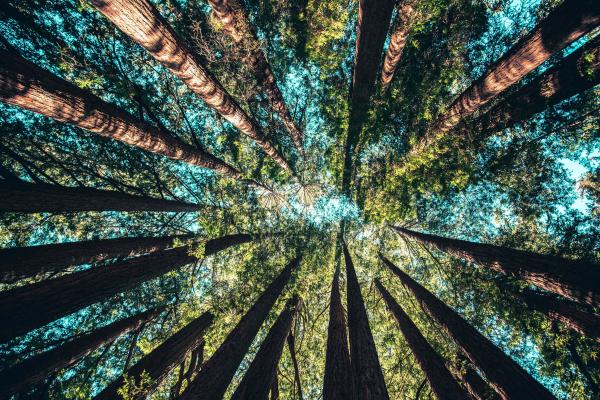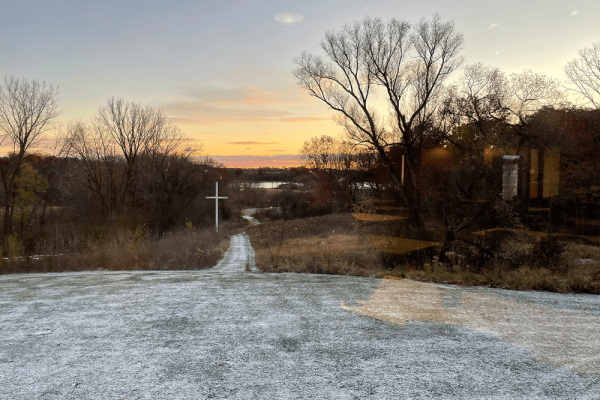When I first joined my partner, Travis, for long hikes with our family, I always had a particular goal in the back of my mind. I’d search the ground as we walked, looking for something that might catch my eye, something meaningful that I could take home with me. It would remind me of that space, an Ebenezer to mark that I had seen and experienced God. Wondering if those rocks had been there for generations, or how many people that dirt felt walk on her dusty skin over the years, I was searching.
Now I realize that while this is a meaningful thing to do, it is the wrong idea. In a way, it’s selfish. I enter the home of the land and the creatures there, and I expect something from them, something that will give me pleasure, fill my cup. It is about taking, not giving; it is about demanding, not receiving.
Recently I went out to Stone Mountain, a state park in our city, Muskogee Creek and Cherokee land that, over time, has been taken over by a confederate carving in the side of the granite mountain. When I go there, I sit by the water. I gently touch and greet the trees. And this day, I asked the water for permission, greeting her, giving thanks.
I realized that I was not there to demand and take whatever I wanted. If a gift came to me (in words or as inspiration), I would receive it with gratitude. I simply wanted the trees, the ants, the dirt, the water, and the wind to know that I was grateful to be among them, grateful that they might want a relationship with me.
We’ve been trained to think on an individualistic level in the United States. When European peoples colonized Turtle Island, they replaced our Indigenous ideas of communal living and identity with individualism, with every man/woman for themselves ideas that eventually became the rallying cry of the United States, a land that prides itself on the American Dream. If you work hard enough, you’ll succeed. Don’t show weakness. Masculinity is the key, and patriarchy is the rule of the land.
As we continue to enter deeper into the crisis of climate change, into the reality of human rights abuses and eruptions of violence happening not just here but all over the world, perhaps we need to take a different approach in our relationship to one another and our creature-relatives all over the earth.
Perhaps we need to remember that being a recipient of a gift is different than demanding a gift be given to us in the first place.
Perhaps being aware of the sacredness of the Earth as she is, is more important than worrying only about how we will be affected as humans when she is hurting and reacting to our mistakes.
Perhaps if we returned to loving the land, waters, and all beings that live and breathe around us, we might learn how to love our human relatives again.
We are, after all, dust to dust. No one can escape that reality.
In this process we must break apart systems that have been created in this country (and across the world through colonization) of patriarchy, which is a culture of taking.
Patriarchy takes the autonomy of women and tells us we are voiceless.
Patriarchy takes the lives of immigrants and refuses to enact gun control.
Patriarchy takes away voter’s rights and puts oppressors in power.
Patriarchy takes away the inherent and sacred rights of Segmekwe, Mother Earth, and tells her that she, too, is voiceless.
We can no longer be people who take.
We must return to being people who ask, who greet, who extend gratitude, who, when we receive, pass that gift on to the next who are in need, practicing reciprocity in this world.
Got something to say about what you're reading? We value your feedback!






